Jeep Avenger vs Toyota bZ4X – Performance, range & efficiency compared
Both models have their strengths – but which one suits you more?
Compare performance, efficiency, price and space directly: Jeep Avenger or Toyota bZ4X?
Costs and Efficiency:
Price and efficiency are often the first things buyers look at. Here it becomes clear which model has the long-term edge – whether at the pump, the plug, or in purchase price.
Jeep Avenger has a clearly advantage in terms of price – it starts at 21900 £, while the Toyota bZ4X costs 36800 £. That’s a price difference of around 14829 £.
In terms of energy consumption, the advantage goes to the Toyota bZ4X: with 13.50 kWh per 100 km, it’s to a small extent more efficient than the Jeep Avenger with 15.50 kWh. That’s a difference of about 2 kWh.
As for range, the Toyota bZ4X performs evident better – achieving up to 568 km, about 168 km more than the Jeep Avenger.
Engine and Performance:
Power, torque and acceleration are the classic benchmarks for car enthusiasts – and here, some clear differences start to show.
When it comes to engine power, the Toyota bZ4X has a convincingly edge – offering 343 HP compared to 156 HP. That’s roughly 187 HP more horsepower.
In acceleration from 0 to 100 km/h, the Toyota bZ4X is significantly quicker – completing the sprint in 5.10 s, while the Jeep Avenger takes 9 s. That’s about 3.90 s faster.
In terms of top speed, the Jeep Avenger performs somewhat better – reaching 194 km/h, while the Toyota bZ4X tops out at 160 km/h. The difference is around 34 km/h.
There’s also a difference in torque: Toyota bZ4X pulls distinct stronger with 338 Nm compared to 260 Nm. That’s about 78 Nm difference.
Space and Everyday Use:
Beyond pure performance, interior space and usability matter most in daily life. This is where you see which car is more practical and versatile.
Both vehicles offer seating for 5 people.
In curb weight, Jeep Avenger is clearly lighter – 1180 kg compared to 1970 kg. The difference is around 790 kg.
In terms of boot space, the Toyota bZ4X offers a bit more room – 452 L compared to 380 L. That’s a difference of about 72 L.
When it comes to payload, Jeep Avenger hardly perceptible takes the win – 502 kg compared to 495 kg. That’s a difference of about 7 kg.
Who comes out on top?
Overall, the Toyota bZ4X shows itself to be leaves the rival little chance and secures the title of DriveDuel Champion.
It convinces with the more balanced overall package and proves to be the more versatile choice for everyday use.
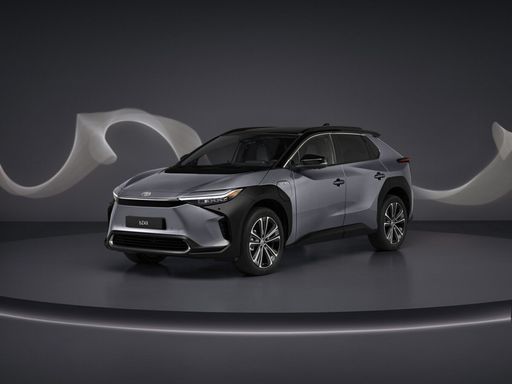
Toyota bZ4X
Jeep Avenger
The Jeep Avenger is a compact SUV that brings a blend of rugged design and modern technology, making it ideal for both urban and off-road adventures. Its robust build and distinctive styling capture Jeep's iconic spirit while offering a comfortable and refined driving experience. With advanced safety features and a versatile interior, the Avenger caters to a wide range of drivers looking for practicality and excitement.
details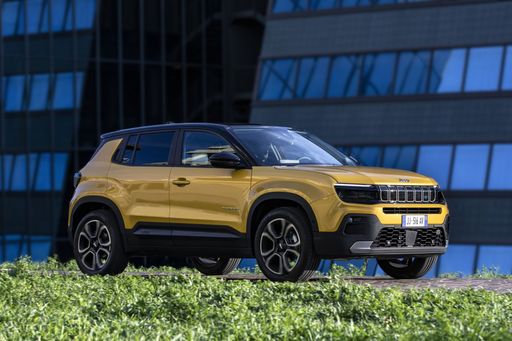 @ Stellantis
@ Stellantis
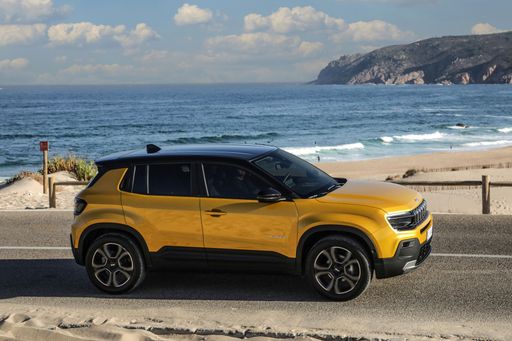 @ Stellantis
@ Stellantis
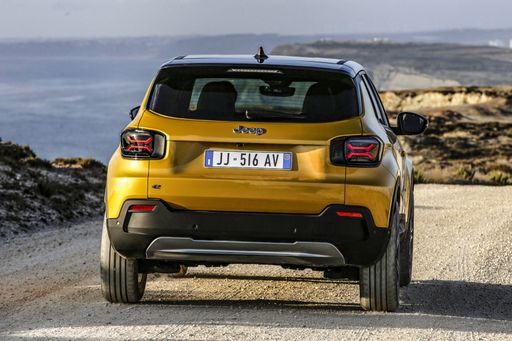 @ Stellantis
@ Stellantis
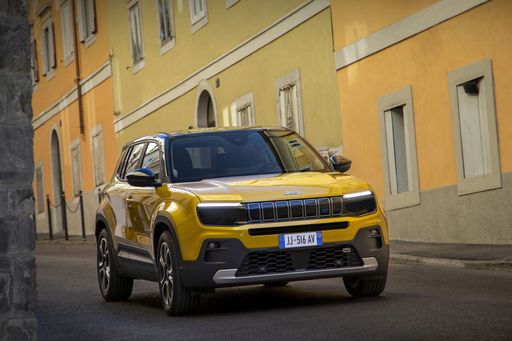 @ Stellantis
@ Stellantis
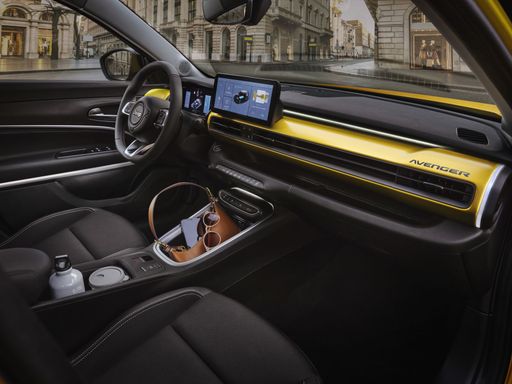 @ Stellantis
@ Stellantis
Toyota bZ4X
The Toyota bZ4X represents a bold step forward in the brand's commitment to electric mobility, showcasing an innovative design that merges futuristic aesthetics and functionality. Inside, the spacious cabin is thoughtfully crafted to provide comfort and advanced technology, ensuring a pleasurable driving experience. With its impressive range and sustainable vision, the bZ4X sets a new benchmark for environmentally conscious driving without compromising on performance or style.
details @ Toyota
@ Toyota
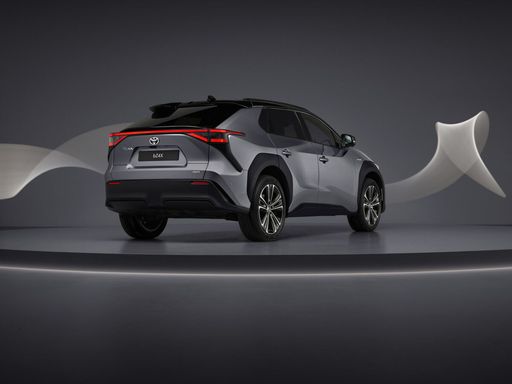 @ Toyota
@ Toyota
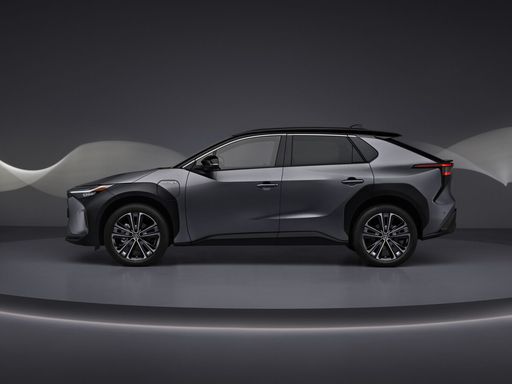 @ Toyota
@ Toyota
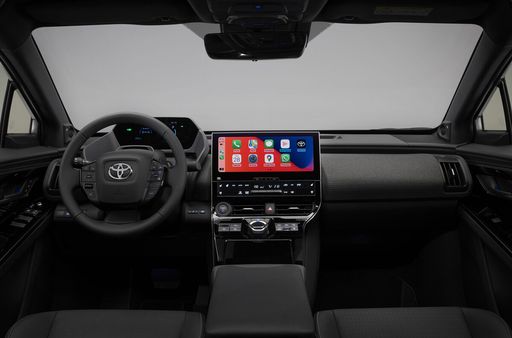 @ Toyota
@ Toyota
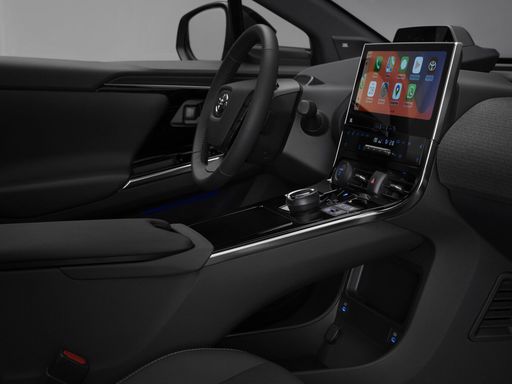 @ Toyota
@ Toyota
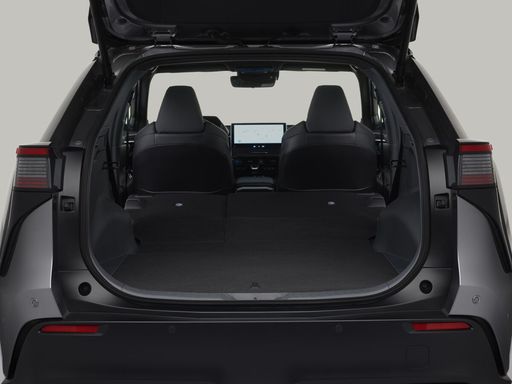 @ Toyota
@ Toyota

|

|
|
|
|
Costs and Consumption |
|
|---|---|
|
Price
21900 - 36900 £
|
Price
36800 - 48000 £
|
|
Consumption L/100km
4.9 - 5.7 L
|
Consumption L/100km
-
|
|
Consumption kWh/100km
15.50 kWh
|
Consumption kWh/100km
13.5 - 16.2 kWh
|
|
Electric Range
400 km
|
Electric Range
444 - 568 km
|
|
Battery Capacity
51 kWh
|
Battery Capacity
-
|
|
co2
0 - 129 g/km
|
co2
0 g/km
|
|
Fuel tank capacity
44 L
|
Fuel tank capacity
-
|
Dimensions and Body |
|
|---|---|
|
Body Type
SUV
|
Body Type
SUV
|
|
Seats
5
|
Seats
5
|
|
Doors
5
|
Doors
5
|
|
Curb weight
1180 - 1520 kg
|
Curb weight
1970 - 2180 kg
|
|
Trunk capacity
325 - 380 L
|
Trunk capacity
452 L
|
|
Length
4084 - 4088 mm
|
Length
4690 mm
|
|
Width
1776 mm
|
Width
1860 mm
|
|
Height
1527 - 1541 mm
|
Height
1600 - 1650 mm
|
|
Max trunk capacity
1218 - 1277 L
|
Max trunk capacity
-
|
|
Payload
494 - 502 kg
|
Payload
375 - 495 kg
|
Engine and Performance |
|
|---|---|
|
Engine Type
Electric, Petrol, Petrol MHEV
|
Engine Type
Electric
|
|
Transmission
Automatic, Manuel
|
Transmission
Automatic
|
|
Transmission Detail
Reduction Gearbox, Manual Gearbox, Dual-Clutch Automatic
|
Transmission Detail
Reduction Gearbox
|
|
Drive Type
Front-Wheel Drive, All-Wheel Drive
|
Drive Type
Front-Wheel Drive, All-Wheel Drive
|
|
Power HP
100 - 156 HP
|
Power HP
167 - 343 HP
|
|
Acceleration 0-100km/h
9 - 10.6 s
|
Acceleration 0-100km/h
5.1 - 8.6 s
|
|
Max Speed
150 - 194 km/h
|
Max Speed
140 - 160 km/h
|
|
Torque
205 - 260 Nm
|
Torque
265 - 338 Nm
|
|
Number of Cylinders
3
|
Number of Cylinders
-
|
|
Power kW
74 - 115 kW
|
Power kW
123 - 252 kW
|
|
Engine capacity
1199 cm3
|
Engine capacity
-
|
General |
|
|---|---|
|
Model Year
2023 - 2025
|
Model Year
2024 - 2025
|
|
CO2 Efficiency Class
A, D, C
|
CO2 Efficiency Class
A
|
|
Brand
Jeep
|
Brand
Toyota
|
What drivetrain options does the Jeep Avenger have?
Available configurations include Front-Wheel Drive or All-Wheel Drive.
The prices and data displayed are estimates based on German list prices and may vary by country. This information is not legally binding.
